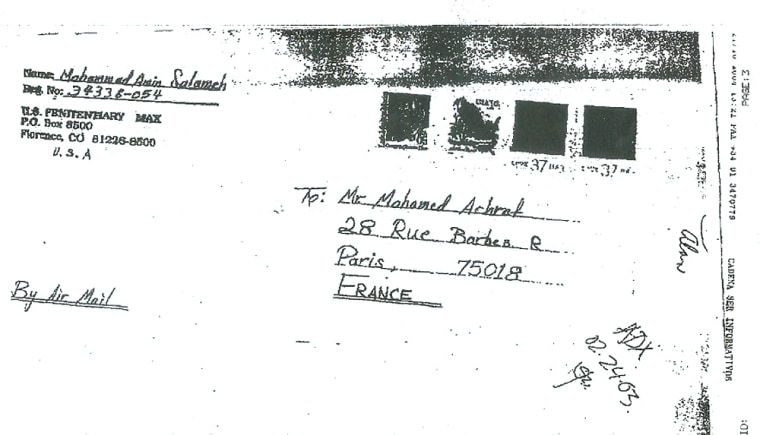It was 12:18 p.m. on Feb. 26, 1993, lunchtime, when the van exploded. The massive bomb rattled the World Trade Center, leaving a giant crater in the underground garage. Six people were killed, and more than 1,000 were wounded.
At the time, it was the worst act of terrorism ever committed on American soil. Three Islamic extremists were among those convicted, each sentenced to more than 100 years in prison.
Former prosecutor Andy McCarthy convicted others involved in the attack.
"It's difficult to imagine people who are more evil or inclined to do more mass homicide," says McCarthy.
So the men were sent to America's most secure federal prisons, eventually ending up at Supermax in Colorado, supposedly unable to do further harm.
Or so we thought. Letters and articles obtained by NBC News show that while behind bars, the 1993 bombers continued their terrorist activities. They wrote letters to other suspected terrorists and brazenly praised Osama bin Laden in Arabic newspapers.
According to confidential Spanish court documents obtained by NBC, at least 14 letters went back and forth between the World Trade Center bombers and a Spanish terror cell.

In February 2003, bomber Mohammed Salameh writes: "Oh God! Make us live with happiness, make us die as martyrs, may we be united on the Day of Judgment." The recipient, Mohamed Achraf, later allegedly led a plot to blow up the National Justice Building in Madrid and is awaiting trial.
In July 2002, a letter Salameh sent from prison is published in the Al-Quds newspaper, proclaiming "Osama Bin Laden is my hero of this generation."
"He was exhorting acts of terrorism and helping recruit would-be terrorists for the jihad," says McCarthy, "from inside an American prison."
The letters to the bombers spoke of the need to "terminate the infidels" and said, "The Muslims don't have any option other than jihad."
Among those corresponding is a man charged with recruiting suicide operatives in Spain. Spanish officials accuse him of using letters to and from the U.S. bombers as a recruiting tool.
All this while the Bureau of Prisons reassured the public that terrorists were under control.
"We have been managing inmates with ties to terrorism for over a decade by confining them in secure conditions and monitoring their communications closely," said Harley Lappin, the Bureau of Prisons director, in October 2003.
Today, federal prison officials refuse to comment directly on what other law enforcement officials call a horrible lapse, saying only that inmates' letters are "monitored" and "inspected."
So how did this happen? Federal officials tell NBC that the Justice Department failed to restrict communications to and from the three bombers because key officials didn't consider them all that dangerous.
Michael Macko lost his father, Bill, in the trade center bombing and attended the 12th anniversary memorial on Feb. 26.
"If they are encouraging acts of terrorism internationally, how do we know they're not encouraging acts of terrorism right here on U.S. soil?" asks Macko.
That's just one of the many questions now being scrutinized by the Justice Department.